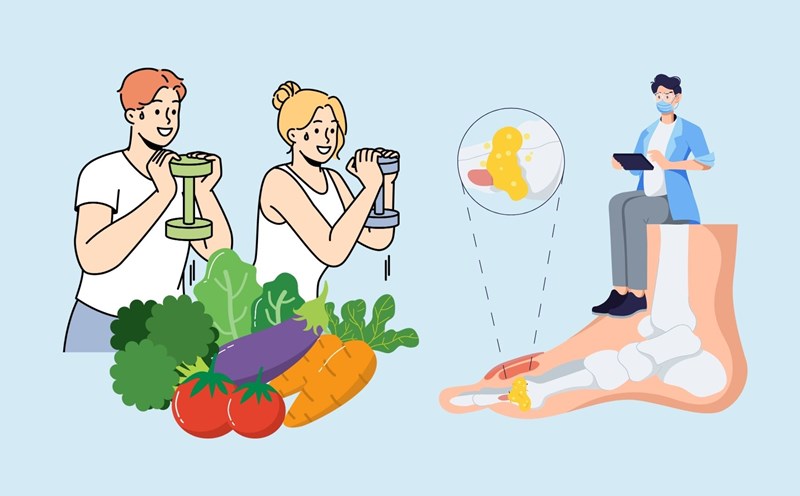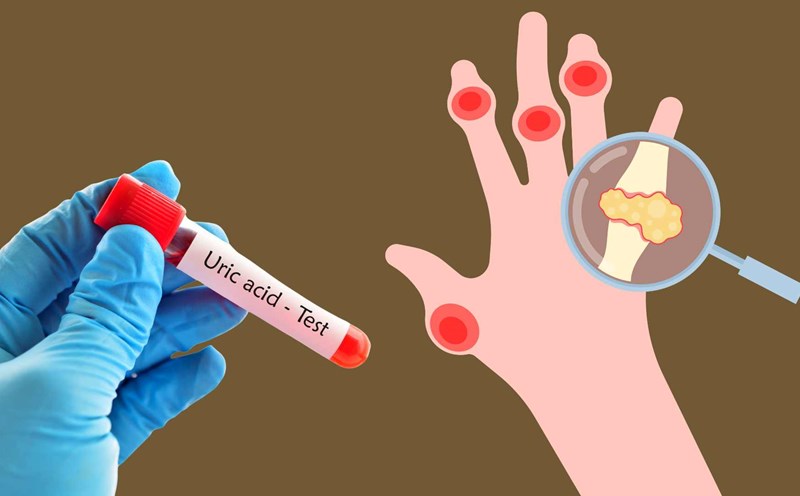Grapes are a popular fruit, rich in vitamin C, antioxidants and minerals. However, for people with high uric acid levels, eating a lot of grapes can lead to unpredictable health consequences.
According to Healthline, grapes contain a fairly high natural fructose content. When fructose is metabolized in the body, it increases the production of purine - a compound that breaks down into uric acid. This is the reason why grapes can cause uric acid levels in the blood to increase rapidly.
A study in the American Journal of Clinical Nutrition shows that a diet high in fructose is closely related to the risk of gout. People who consume a lot of sweet fruits or fruit juices containing a lot of fructose have a higher rate of increased uric acid than those who limit this group of foods.
In addition, grapes have an average to high glycemic index (GI), causing blood sugar to increase rapidly after eating. A spike in blood sugar not only puts pressure on the pancreas but also stimulates uric acid production, making the loss of control worse.
This does not mean that healthy people must completely eliminate grapes from their menu. Experts recommend eating grapes in moderation, combined with green vegetables rich in fiber to limit the impact on uric acid and blood sugar. For people who have had gout or have a high uric acid index, they should limit grapes, especially in the form of thick juices, because it can easily increase the metabolic burden.
Controlling the amount of fructose-rich foods such as grapes, mangoes, pears... is an important step in preventing hyperuricemia. Instead, patients can prioritize low-sugar fruits such as cherries, strawberries, or tangerines to both supplement vitamins and be safer for the metabolic system.











